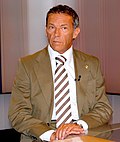| |||||||||||||||||||||||||||||||||||||||||||||||||||||||||||||||||||||||||||||||||||||||||||||||||||||
183 seats in the National Council of Austria 92 seats were needed for a majority | |||||||||||||||||||||||||||||||||||||||||||||||||||||||||||||||||||||||||||||||||||||||||||||||||||||
|---|---|---|---|---|---|---|---|---|---|---|---|---|---|---|---|---|---|---|---|---|---|---|---|---|---|---|---|---|---|---|---|---|---|---|---|---|---|---|---|---|---|---|---|---|---|---|---|---|---|---|---|---|---|---|---|---|---|---|---|---|---|---|---|---|---|---|---|---|---|---|---|---|---|---|---|---|---|---|---|---|---|---|---|---|---|---|---|---|---|---|---|---|---|---|---|---|---|---|---|---|---|
| |||||||||||||||||||||||||||||||||||||||||||||||||||||||||||||||||||||||||||||||||||||||||||||||||||||
| |||||||||||||||||||||||||||||||||||||||||||||||||||||||||||||||||||||||||||||||||||||||||||||||||||||
A legislative snap election for the National Council in Austria was held on 28 September 2008. [1] The previous election was held on 1 October 2006. The election (the 24th in Austrian history) was caused by the withdrawal of Austrian People's Party leader Wilhelm Molterer from the governing grand coalition (led by the Social Democratic Party of Austria) on 7 July 2008. [2] Due to dissatisfaction with the grand coalition and the two main parties, it was widely expected to be a realigning election, with gains for the opposition and up to seven parties expected to be in the National Council after the election. [3] [4] [5] [6] The losses for the government parties (both the SPÖ and the ÖVP had the worst election result in history) resulted in strong gains for the far right, while neither the Liberal Forum nor the Citizens' Forum Austria (both of which were considered to have chances of gaining seats) gained as much as 2% of the vote, defying earlier expectations. The result of the election was seen as strong for the far-right and in support of Eurosceptics. [7]
Contents
Molterer resigned as party chairman as a result of the losses suffered by the ÖVP and was replaced by environment minister Josef Pröll; the Greens' federal spokesman Alexander Van der Bellen (in office since 1997) also resigned and was replaced by his deputy, Eva Glawischnig. Due to the LIF's failure to enter parliament on its own, LIF founder Heide Schmidt and financier Hans-Peter Haselsteiner both declared their complete withdrawal from politics, and the LIF's fate was seen as uncertain. Shortly after the election, BZÖ leader and Carinthian governor Jörg Haider died in a car accident.





